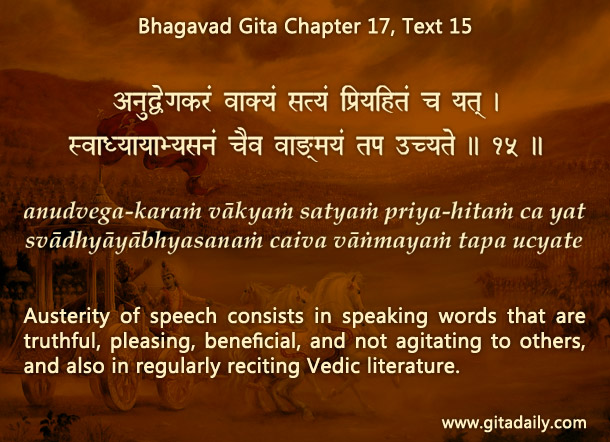Speech is effective when it is both sensible and sensitive (Bhagavad-gita 17.15). Our speech becomes ineffective when we are sensible but not sensitive. Let’s understand with a surgical example.
Suppose an orthopedic surgeon plans the surgery to fix a misaligned bone with painstaking precision but neglects to give anesthesia. The patient will find the pain so unbearable as to resist fiercely. When the surgeon neglects giving anesthesia, they unwittingly see the patient as a mere mechanical arrangement to be fixed, the way a misshapen bar in a house may be fixed by a hammer. However, the patient is a living person with their consciousness invested in their body, including in their misaligned bone.
Our approach becomes similarly unidimensional when we focus only on our speech’s logical soundness, not on its emotional impact. Underlying this approach is our defective vision: we view our audience as merely a set of intellectual conceptions — some of their conceptions are wrong and we plan to set them right with the hammers of our rational arguments. But people are conscious beings with their emotions invested in their conceptions. Such investment of emotions is especially intense and intimate when those conceptions relate with the sacred and the spiritual; they may be deeply devoted to the tradition or the teacher from whom they learnt those conceptions. What happens when we criticize those conceptions, traditions, or teachers? Frequently, they find the criticism so excruciating that it becomes difficult, if not impossible, for them to consider the logic of our points.
Just as a surgeon needs to take the trouble to give anesthesia to the patient, we too need to take the trouble to be sensitive to our audience’s emotions.
One-sentence summary:
If our speech is sensible without being sensitive, we make it unnecessarily, even unbearably, difficult for others to accept what we are saying.
Think it over:
- How is our approach wrong when we are only sensible but not sensitive?
- What is the wrong vision underlying such an approach?
- Consider any crucial conversation you need to have with someone. How can you sensitize yourself to their emotions?
***
17.15: Austerity of speech consists in speaking words that are truthful, pleasing, beneficial, and not agitating to others, and also in regularly reciting Vedic literature.


Excellent pr ji! Most of the times mistake happens here only. Since we have trained ourselves either to think either with emotions (mind) or logic(intelligence). We haven’t trained ourselves to think combining both.
Good point, thanks.